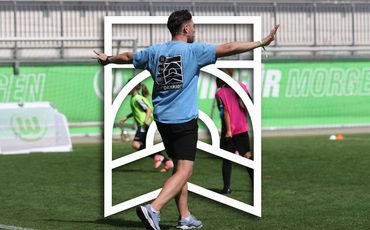Coaching Strategies That Enhance Learning: Long-Term Planning
When it comes to coaching, short-term wins are important—but long-term learning is where real development happens. To support young athletes in reaching their full potential, coaches must look beyond the next session or match and embrace strategies that foster growth over time. At the heart of this process is one essential truth: long-term learning depends on effective planning.
Why Planning Matters
Without a clear, nested plan, coaches risk drifting from session to session without direction. While short-term improvements may occur, long-term development requires structure, purpose, and progression. A well-thought-out plan sets expectations, tracks progress, and ensures that every session contributes to a broader developmental journey.
Key Long-Term Coaching Strategies
Genuine Care for Participants
Athletes are more open to learning when they feel valued. Care can take many forms—from listening to their concerns to challenging them to work harder. What matters most is that this care is perceived and accepted by the athlete.
Honest Feedback and Expectation Management
Coaches should provide clear, constructive feedback and manage expectations realistically. While honesty is crucial, timing and delivery are equally important to ensure feedback motivates rather than discourages.
Promote Understanding and Enjoyment Learning is emotional. Coaches should regularly check for both understanding and enjoyment. If athletes are disengaged or bored, learning stalls. Keeping sessions fun and meaningful is key.
Balance Training and Competition
Competition should serve development—not overshadow it. Coaches must carefully manage the amount, level, and format of competition to ensure it supports learning rather than becoming the sole focus.
Two Complementary Perspectives
Coaching literature offers two influential approaches to long-term learning:
- Deliberate Practice (Ericsson): Focused, effortful practice aimed at improving specific skills. It’s often not fun, but it’s effective for building expertise.
- Deliberate Play (Côté): Informal, enjoyable activities that encourage creativity and adaptability. Think street football or playground basketball—fun, spontaneous, and full of learning opportunities.
Both approaches have merit. Deliberate practice builds precision and mastery, while deliberate play fosters problem-solving and game intelligence. The best coaching strategies blend both, adapting to the needs of the athlete and the demands of the sport.
Final Thoughts
To enhance learning over the long term, coaches must combine thoughtful planning with strong relationships and a developmental climate. Whether using drills or games, deliberate practice or play, the goal is the same: to help each child grow, enjoy, and thrive.
Let’s summarise the essentials:
- Short-Term Learning: Focus on enjoyment, specific feedback, praise, and avoiding punishment.
- Long-Term Learning: Prioritise planning, build relationships, and create a supportive environment.
And remember the two golden rules of coaching:
- Maximise the doing.
- Emotion drives learning.
Watch the full video below
Comments
Related Pages


